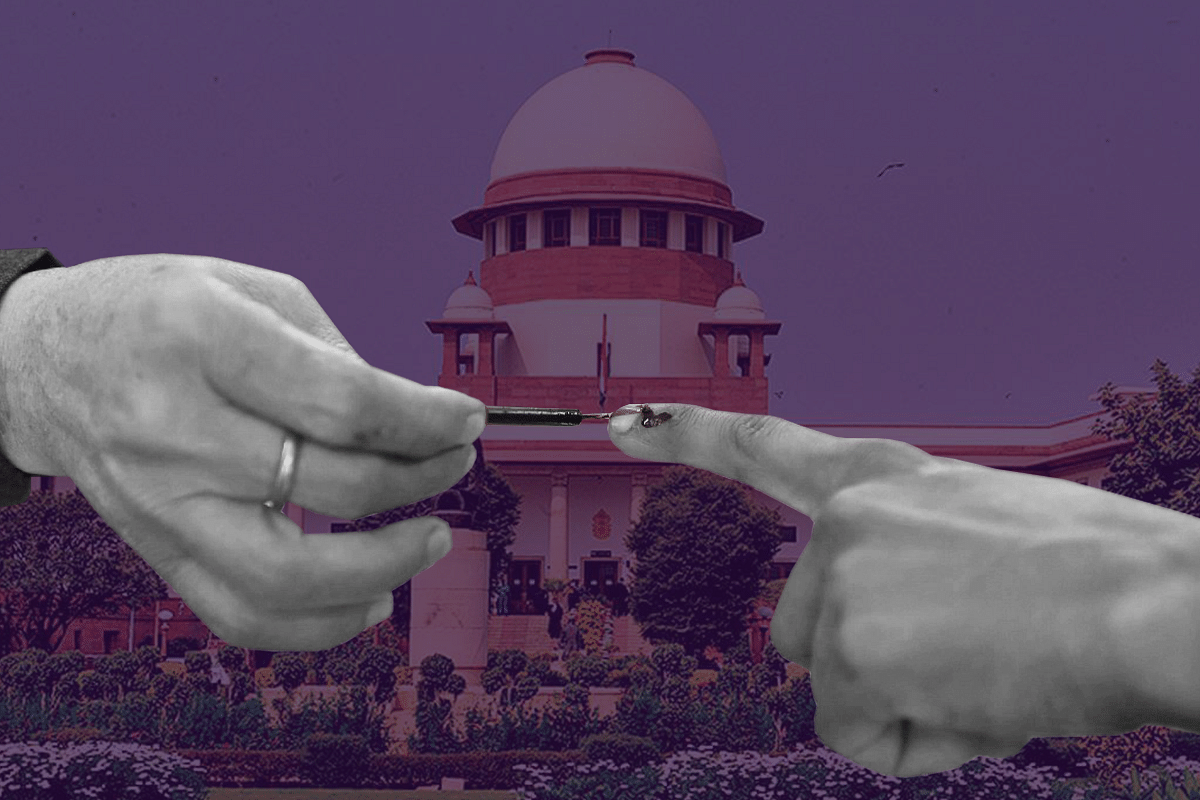Politics
SC’s Ruling On Appointment Of Chief Election Commissioner Is Judicial Bullying
- While the justices have said that the current ruling must be implemented until a better law is in place, where lies the guarantee that the judiciary would agree to the new law as the right substitution?

The SC has picked up a battle it cannot win in the court of public.
The government of the day, elected by the people of India through elections that were fought fair and square, are courting a supreme problem.
In what can be termed as a direct violation of Article 324, the apex court restricted the government’s ability to appoint the Chief Election Commissioner (CEC) and other election commissioners.
What was defined as the prerogative of the President of India alone in the Constitution has today been virtually hijacked by the judiciary in the name of safeguarding democracy.
The apex court declared that the appointment of the CEC and other commissioners would be done by the President, but on the basis of the advice tendered by the committee that is made up of the Prime Minister of India, the leader of the opposition in the Lok Sabha (or the leader of the largest party in the opposition), and the Chief Justice of India.
While one can debate the presence of the opposition leader(s) in such a committee, where lies the justification for the judiciary to interfere in the appointment process?
Article 324 deals with the composition of the election commission, and in the most unambiguous fashion, reserves the power with the President when it comes to the appointments.
Therefore, multiple questions arise.
One, can the apex court, in the name of neutrality and electoral spirit, violate a significant article of the constitution.
Two, if there is no accountability when it comes to the appointment of the CJI, why must they be allowed to force themselves to be part of the said committee?
Three, how does one estimate the neutrality of the Chief Justice of India?
As quoted by a legal observer, the justice said that the party in power would want to pursue the ambition of remaining in power through a commission that may want to please the government of the day.
Put simply, this judiciary, to justify its overreach, is imagining corruption on the part of the commission. If their assumption was true, parties in power would win most elections, always.
The justices also took this opportunity to attack the media fraternity, stating that they were partisan.
Similar observations were made during the Nupur Sharma case, when she requested the clubbing of the FIRs against her.
However, with all due respect, the ideological inclinations of any media house are not the business of the justices, for that is a conscious choice they make, and the viewers who tune into their shows or read their opinions, are also exercising their fundamental right in choosing who they wish to hear from.
Amongst many things, it is time for the apex court to realise that they cannot dictate how the media converses with its audience, and on what matters.
And while the Supreme Court's order does lead us to the question, 'then what about the NJAC?', even assuming NJAC was in play today and implemented, the ruling would still qualify as problematic.
The makers of the constitution may have envisioned a law around Article 324, but again, to usher one or not, is the decision of the elected representatives.
While the justices have said that the current ruling must be implemented until a better law is in place, where lies the guarantee that the walking gods amongst the lesser mortals would agree to the law as the right substitution?
The SC has picked up a battle it cannot win in the court of public, but then they are not answerable to the electorate or the state itself, and while the parliament may want to usher a law that is more respectable towards the idea of separation of powers, where lies the solution for routine judicial overreach?
Introducing ElectionsHQ + 50 Ground Reports Project
The 2024 elections might seem easy to guess, but there are some important questions that shouldn't be missed.
Do freebies still sway voters? Do people prioritise infrastructure when voting? How will Punjab vote?
The answers to these questions provide great insights into where we, as a country, are headed in the years to come.
Swarajya is starting a project with an aim to do 50 solid ground stories and a smart commentary service on WhatsApp, a one-of-a-kind. We'd love your support during this election season.
Click below to contribute.
Latest